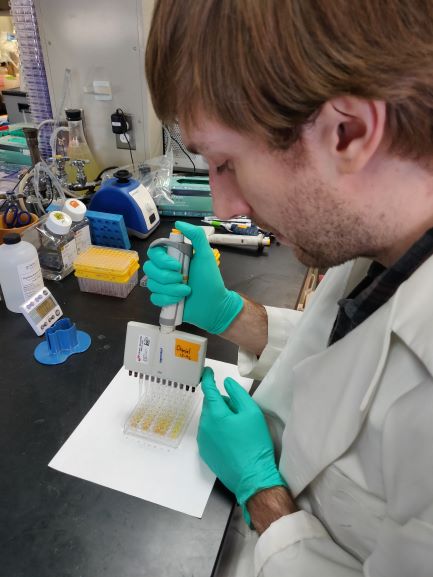The majority of individuals with COVID-19—including those with mild infections—mount a robust antibody response that is stable for at least three months, according to a new study by researchers at the Icahn School of Medicine at Mount Sinai. This antibody response correlates with the body’s ability to neutralize or actually kill the SARS-CoV-2 virus.
Mount Sinai’s findings concur with studies conducted by major academic institutions elsewhere. Scientists have now had more than three months to track the levels of antibodies produced by individuals since the SARS-Co-V2 virus began to infect populations around the world.
“There were messages about the antibodies going away quickly. That’s not the case,” says Florian Krammer, PhD, Professor of Microbiology, Icahn School of Medicine at Mount Sinai, a senior author on the recent preprint study. “The take-home message is that it looks like a pretty normal immune response.” Dr. Krammer developed one of the first effective SARS-CoV-2 antibody tests, which received emergency use authorization from the U.S. Food and Drug Administration at Mount Sinai’s clinical laboratory.
Additional time will be needed to determine how protective those antibodies are and how long-lived they are beyond three months. So far, Dr. Krammer says, animal models show that antibodies to COVID-19 behave like typical antibody responses to other diseases, meaning they protect from reinfection. The same scenario is likely for the vast majority of individuals, he says. If people become infected again their symptoms would likely be less severe.
“You need to follow people to see how long the antibodies are stable. These studies require time and there will be more data as researchers look at antibodies after 3 months, after 6 months and then again after a year,” Dr. Krammer says. He and his colleague, Viviana Simon, MD, PhD, Professor of Microbiology, and Medicine (Infectious Diseases), at the Icahn School of Medicine at Mount Sinai, are doing exactly that. In a study called Protection Associated with Rapid Immunity to SARS-CoV-2 (PARIS), they are tracking the antibody levels of, approximately, 140 individuals over 12 months. “We examine the participants every two weeks so we get a very granular look at how the antibodies are moving,” Dr. Krammer says.
Within the human body there are several levels of defense. In a typical response, acute plasmablast B cells are generated within days of an infection. These first responders serve as the infantry and coalesce to make an initial bolus of antibody, but their strength soon wanes. Then the body’s immune system kicks in with long-lived plasma B cells, which provide antibodies over a long period of time, and memory B cells, which can respond quickly if the virus attacks again. COVID-19’s relatively long incubation period of upwards of 7 days, likely gives the body ample time to create antibodies quickly if a reinfection would occur.
In addition to these B cell antibodies, the human body makes memory T cells, which appear to be helpful in fighting off the SARS-CoV-2 virus. In fact, blood samples taken from individuals who survived the first SARS virus in 2002-2003—a coronavirus cousin of SARS-CoV-2—showed they still had active memory T cells 17 years later, according to the National Institutes of Health (NIH). Interestingly, the NIH reported that these memory T cells now also recognized part of the SARS-CoV-2 virus.
“There’s a lot of evidence that we see a normal immune response,” Dr. Krammer says. “Now that doesn’t mean we will all be protected forever. And it doesn’t mean that it’s impossible to get re-infected, specifically if someone is immune suppressed. We just don’t have that data yet. We will generate that data as we move forward.”
source:https://health.mountsinai.org/blog/most-people-mount-a-strong-antibody-response-to-covid-19/
